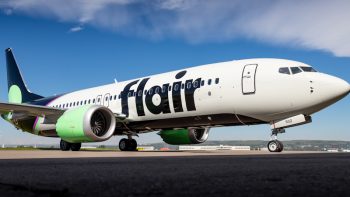
The Canadian government has announced an investment of $350 million to support the green transformation of the aerospace industry.
The global aviation sector is said to account for 2 per cent of global greenhouse gas emissions. Commercial aircraft emissions could triple by 2050, it's predicted. Ottawa's Canada’s Aviation Climate Action Plan 2022–2030 aims to achieve net zero by 2050, including by developing and adopting new green aerospace technologies.
The new investment is dubbed the Initiative for Sustainable Aviation Technology (INSAT) and will back collaborative research and development projects with companies across Canada, Francois-Philippe Champagne, the Innovation, Science and Industry Minister said in a statement on 19JUN.
“Our government is committed to making Canada a leader and a strategic partner of choice when it comes to sustainable aviation. Today’s $350 million investment to support the Initiative for Sustainable Aviation Technology will help drive and accelerate the green industrial transformation of Canada’s aerospace industry, generating high-value jobs while strengthening supply chains and supporting the transition to a net-zero economy,” said Champagne.
This investment addresses the recommendations put forth by the Aerospace Industries Association of Canada, involving over 450 industry representatives and stakeholders nationwide, and will primarily focus on advancing hybrid and alternative propulsion technologies, improving aircraft systems, facilitating the transition to alternative fuels, and developing aircraft support infrastructure.
According to the statement, the aerospace industry contributes nearly $27 billion and over 210,000 jobs to the economy. According to the statement:
With this investment, the federal government aims to foster innovation, enhance competitiveness, and position Canada as a global leader in sustainable aviation.
Walter Di Bartolomeo, Interim Chairman of the Board, Initiative for Sustainable Aviation Technology of Canada, says, “Our mission is to coordinate and accelerate the development of sustainable aviation technologies in Canada—technologies in our products and services... INSAT is a key vehicle to strengthening Canada’s aerospace sector by supporting this cross-industry collaboration, IP generation, and talent development."
As Reuters reports, airlines are calling for industry collaboration - even across competing brands - to help achieve "very tough" international emission targets.
Airbus has committed to launching the first hydrogen-powered commercial plane in 2035, and in 2019, a Vancouver-based company operated the world's first fully electric commercial flight.





